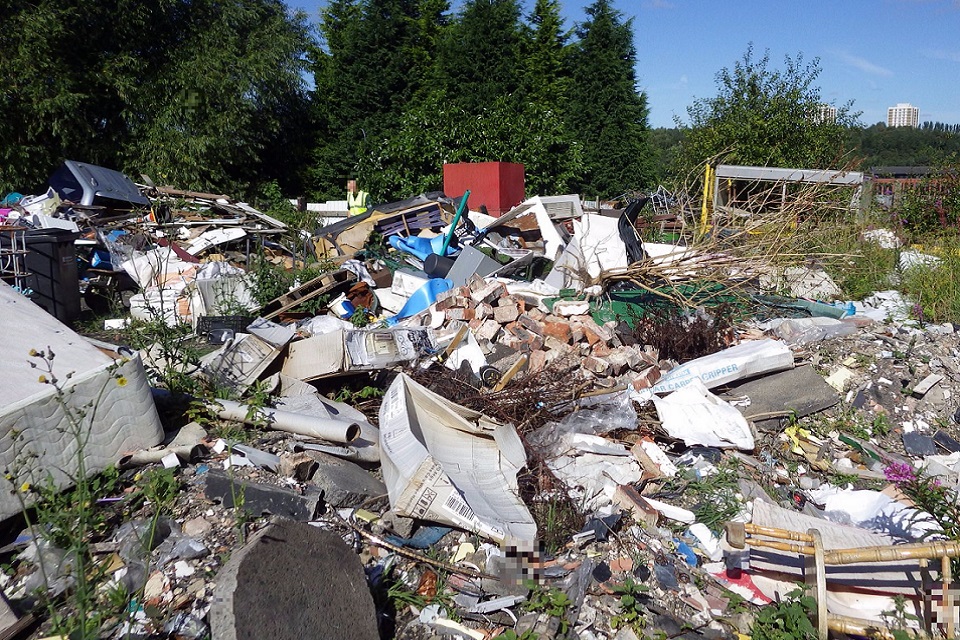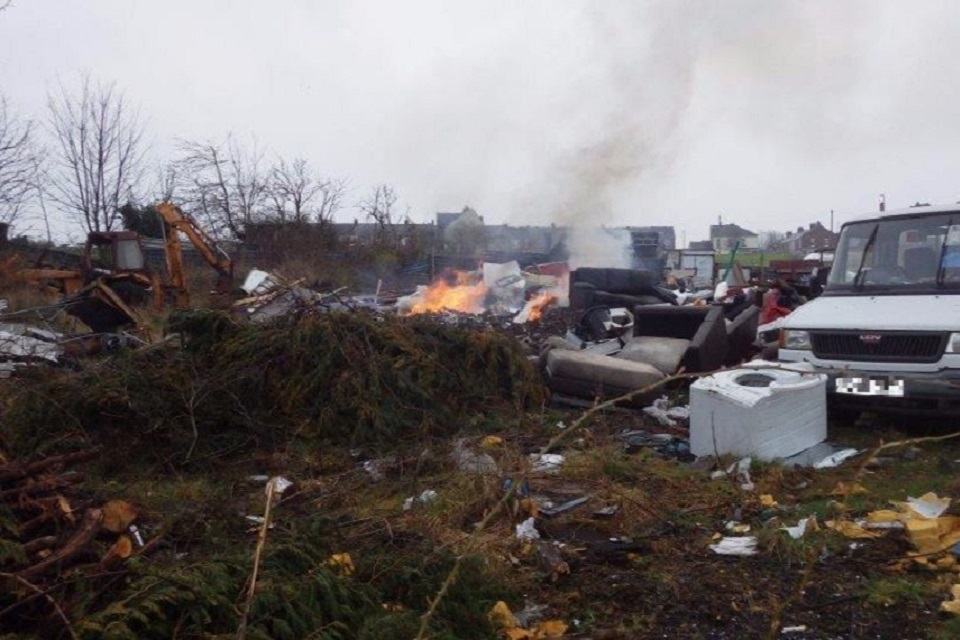Press release: North east man sentenced for illegal waste operation
A North East man who burned waste at his illegal waste site to avoid disposal costs has been sentenced.
George Charlton, 62, of Manor Way in Jarrow, appeared at Gateshead Magistrates’ Court for sentence on Wednesday 23 August after previously pleading guilty to flouting environmental law.
He was charged with operating a waste site without a permit at Reay Street, Bill Quay in Gateshead, and illegally burning waste at that site.
He was sentenced to an 18-month Community Order, 250 hours of unpaid work, a 30-day Rehabilitation Activity Requirement, and ordered to pay costs of £750.

No environmental permit
Acting on behalf of the Environment Agency, solicitor Laura Taylor told the court that
Charlton collected waste from friends and relatives and took it to the site without registering as a waste carrier. He also had no environmental permit to store and sort the waste at the yard.
Environment Agency officers first visited the site on 4 April 2016 after they saw a cloud of smoke coming from the compound. On investigation they saw a pile of waste on fire and waste including furniture, beds, mattresses, wood and waste electrical items strewn across the site.
They spoke to George Charlton, who was on site, who said he was looking after it for his son. He became aggressive but the officers said the fire needed to be put out. Charlton extinguished the fire before leaving the area.
Further visits saw the waste still remained on site. On 4 July, the Environment Agency sent a letter to Charlton requesting that he stopped all waste activities on the site and cleared all waste by 15 August 2016.
On 24 August, the Environment Agency attended the site for an inspection together with Northumbria Police and officers from Gateshead Council.
Officers saw there were still large piles of mixed waste including household furniture, white goods, construction waste, garden rubbish and some scrap vehicles. There was also evidence of burning.
On 25 August Charlton was interviewed, where he confirmed his son was the legal owner of the site having been transferred through a solicitor, and that he had been looking after the yard since 2013.
He said he would attend the site around twice a week to check on it and deposit rubbish from friends and relatives. He said he would weigh in the scrap metal for money and cut up wood and other items to burn them.

Waste still present
Paul Whitehill, Environment Officer with the Environment Agency in the North East, said:
Charlton was warned to stop his operation and to clear waste from the site but on multiple visits it was clear a large amount of waste was still present.
On the site inspection, which took place on 24 August 2016, after he was supposed to have cleared the site completely, there was still a large quantity of mixed waste and evidence of burning.
Illegal waste activity such as this has a detrimental impact on the community and environment, as well as undermining legitimate businesses. We’ll continue to work hard to ensure enforcement action is taken against those who flout the law.